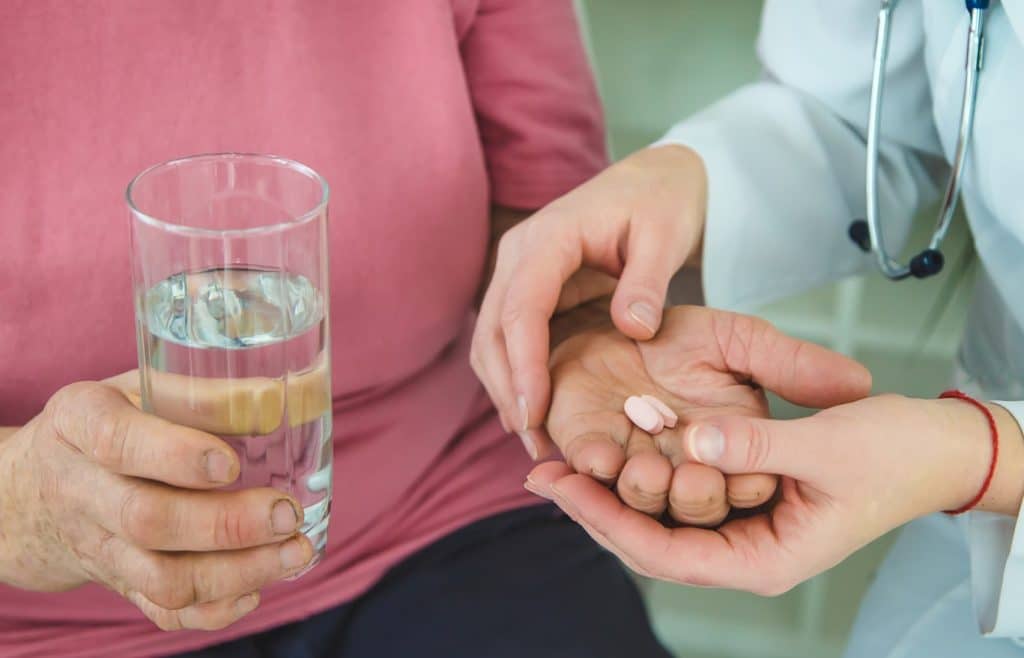Are you or a loved one struggling with addiction? If so, you may have heard of Medication-Assisted Treatment, also known as MAT. While this form of treatment has been around for decades, it’s still not widely understood by many people.
In this blog post, we’ll dive into what MAT is and how it can help those struggling with addiction.
What Is Medication-Assisted Treatment Exactly?
Medication-Assisted Treatment, commonly known as MAT, is a comprehensive approach to addiction treatment that involves the use of medications in combination with counseling and behavioral therapies. It is an evidence-based practice that has been proven effective in treating substance abuse disorders.
MAT usually involves the administration of FDA-approved medications such as methadone, buprenorphine or naltrexone that can help reduce cravings and withdrawal symptoms associated with opioids or alcohol use disorder. This allows people struggling with addiction to focus on their recovery without experiencing painful physical symptoms.
The goal of MAT is not just to manage dependence but also to help individuals achieve and maintain abstinence from drugs or alcohol over time. It provides a safe and medically supervised way for people to manage their condition while receiving other forms of therapy aimed at addressing underlying issues related to drug abuse.
It’s important to note that MAT should always be used alongside counseling and behavioral therapies for maximum effectiveness. These approaches work together to help individuals overcome addiction by changing behaviors, attitudes, beliefs and lifestyle choices. There is no silver bullet for addiction.
The Different Types Of Medication-Assisted Treatment
Medication-Assisted Treatment is not a one-size-fits-all approach. The different types of MAT vary depending on the individual’s substance use disorder and medical history.
The medications used in MAT work by reducing the symptoms of withdrawal and cravings, allowing for a smoother transition into sobriety. There are several medications that can be used in MAT, including methadone, buprenorphine, and naltrexone.
One type of MAT is Methadone, which has been around for over 50 years. It works by blocking the opioid receptors in the brain, reducing withdrawal symptoms and cravings. This can be used as an aide in detox or as a long-term maintenance strategy.
Another medication used in MAT is Buprenorphine, which also blocks opioid receptors but to a lesser degree than Methadone. Naltrexone is another medication used in MAT that blocks opioids’ effects by binding to their receptors without activating them. This medication can be administered orally or as an injection once every four weeks.
Some people may benefit from using multiple medications simultaneously for their treatment plan. For example, Suboxone contains both Buprenorphine and Naloxone, effectively reducing cravings and preventing misuse.
It’s important to note that not all individuals with substance use disorders are candidates for every type of medication-assisted treatment available. A comprehensive evaluation by a healthcare professional is necessary before starting any form of MAT.
Pros And Cons Of Medication-Assisted Treatment
Medication-Assisted Treatment is a valuable and tested tool for individuals who are struggling with substance abuse disorders. However, it’s important to weigh the pros and cons of MAT before deciding if it’s right for you.
One advantage of MAT is that it can reduce cravings and withdrawal symptoms, making it easier to maintain sobriety. Also, medical professionals can prescribe medication, which can help prevent relapse.
Another benefit of MAT is that it can help address co-occurring mental health disorders, such as depression or anxiety, which often contribute to addiction.
On the other hand, some people may see MAT as “trading one addiction for another.” Also, keeping up with medications on a daily basis can feel restrictive or frustrating. Furthermore, there are potential side effects from medication usage.
However, these issues usually pale compared to the benefits of medication-assisted treatment to those with strong addictions.
It’s essential to have an honest conversation with your healthcare provider about the benefits and drawbacks of MAT in relation to your individual situation. Weighing both sides thoughtfully and thoroughly examining how each option might fit into your life goals will help you make the best decision possible regarding treatment options.
Alternatives To MAT
While medication-assisted treatment has shown to be effective for many people struggling with addiction, it may not be the best option for everyone. Fortunately, there are alternatives available.
One alternative is behavioral therapy. This can involve individual or group counseling sessions aimed at helping individuals learn coping skills and strategies to manage cravings and triggers without the use of medications.
Another alternative is holistic therapies such as yoga, meditation, acupuncture, and art therapy. These approaches aim to heal the person as a whole— body, mind, and spirit— rather than just treating symptoms of addiction.
Support groups like Alcoholics Anonymous or Narcotics Anonymous can also provide an important network of peers who understand what you’re going through and offer support on your journey toward recovery.
Of course, all the treatments mentioned above can and regularly are used with MAT. Addiction treatment is rarely an either-or proposition.
Thinking About Medication-Assisted Treatment? We Can Help
Medication-Assisted Treatment is a proven approach to managing addiction and facilitating long-term recovery. While it may not be the best option for everyone, it remains a valuable tool in the fight against substance abuse.
It is essential to understand that MAT is more than just taking medication. It involves comprehensive care that addresses all aspects of addiction. Choosing whether or not to use MAT should always be done based on individual needs and preferences in conjunction with a doctor or addiction specialist.
If you are struggling with addiction, give us a call at (330) 919-9228, and we can guide you through your journey towards recovery. Remember that there is hope for those who struggle with substance abuse, and no one has to suffer alone.








